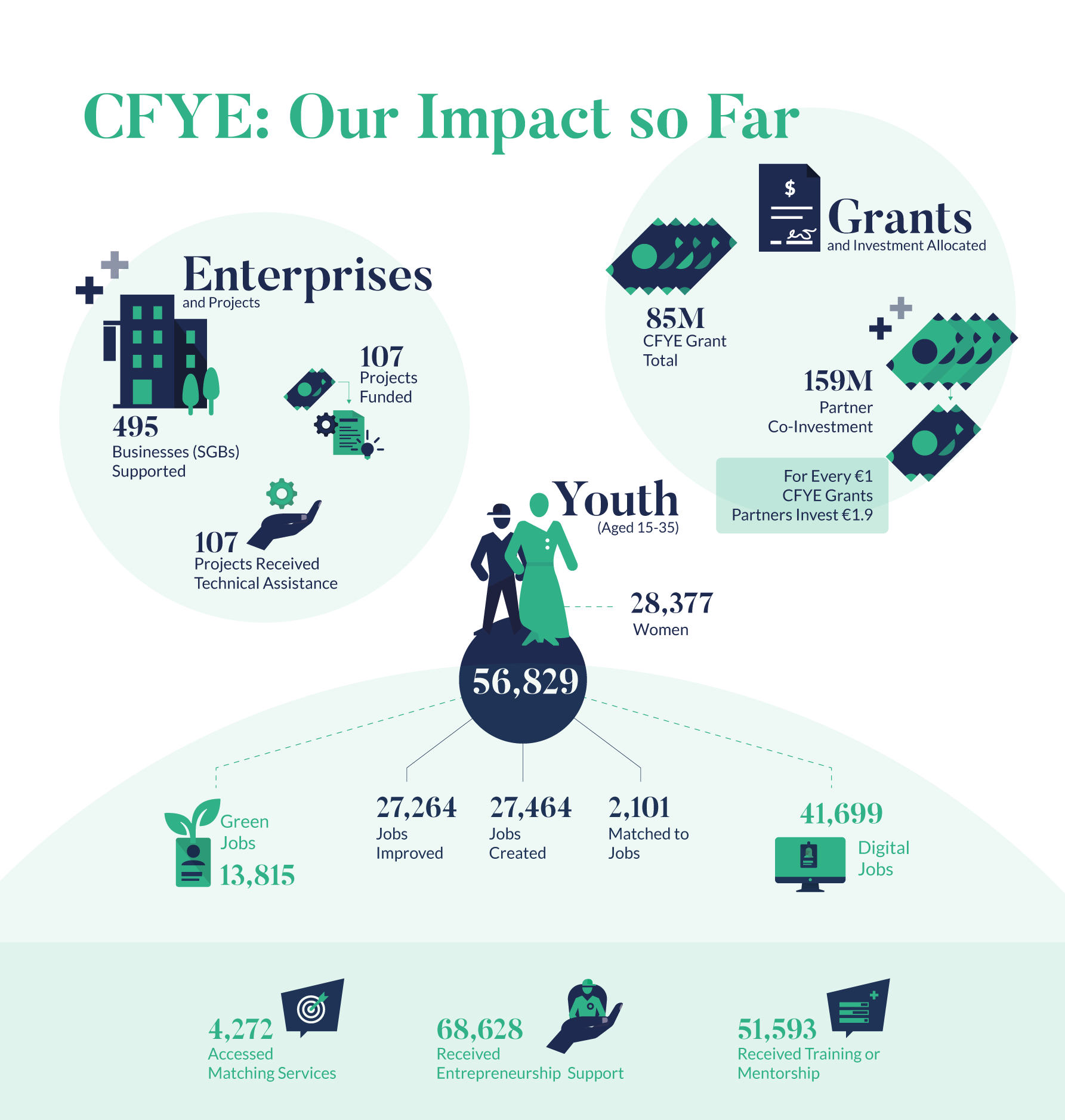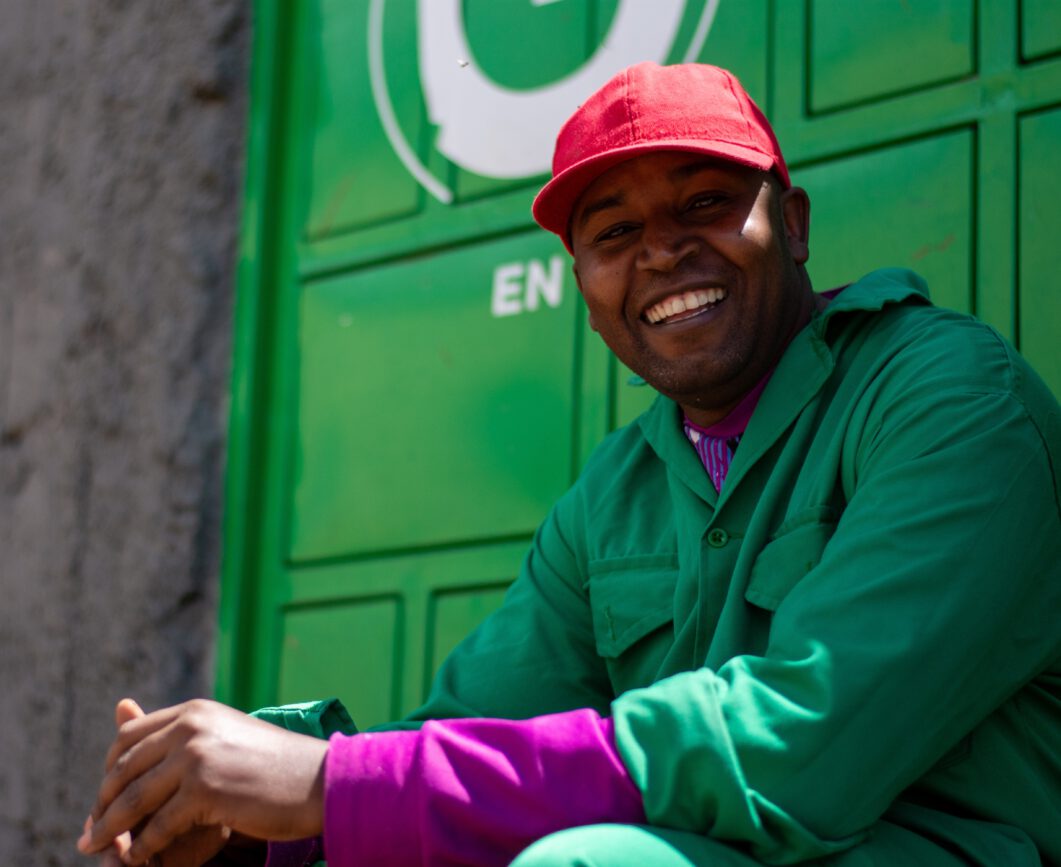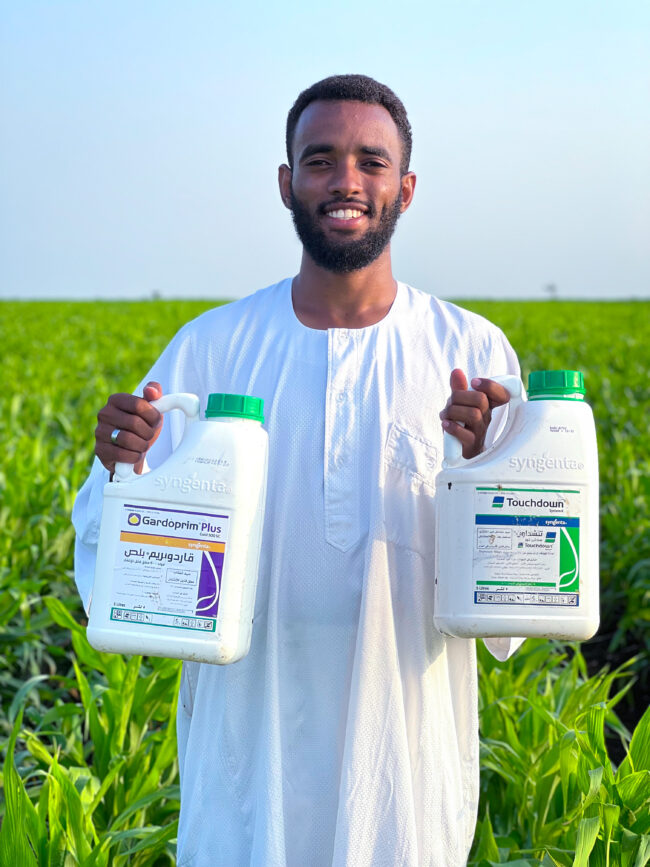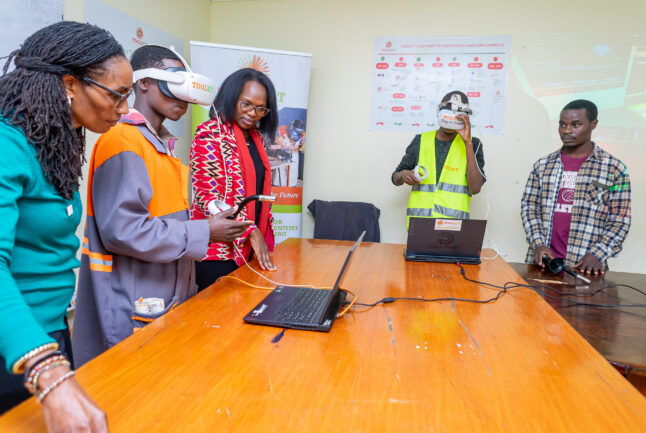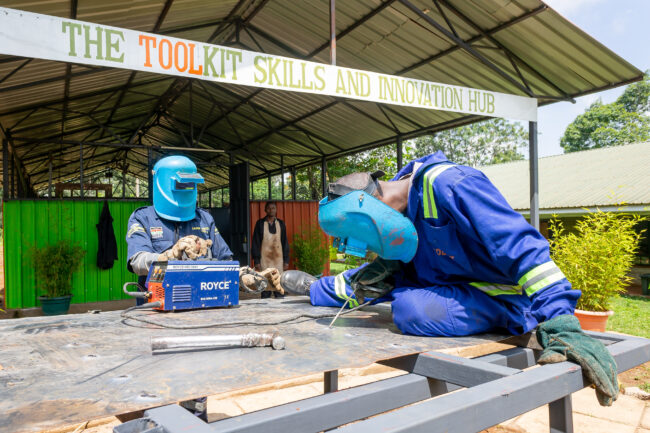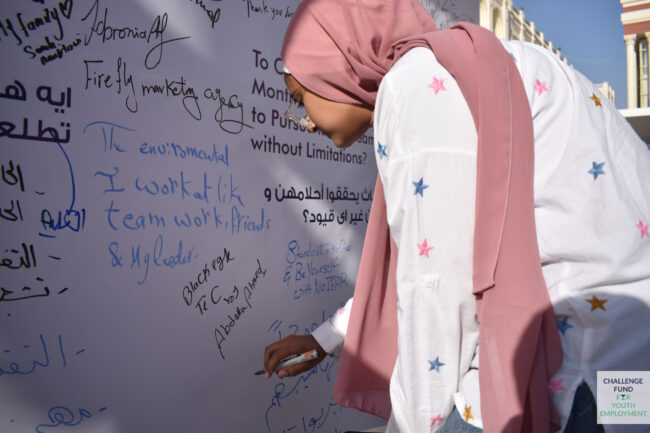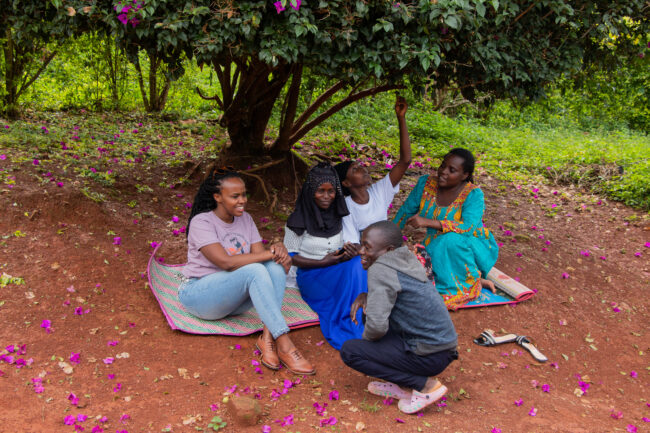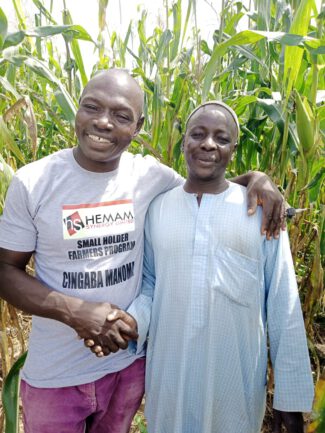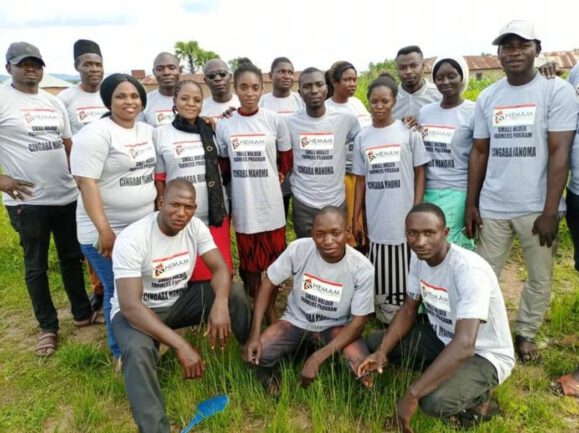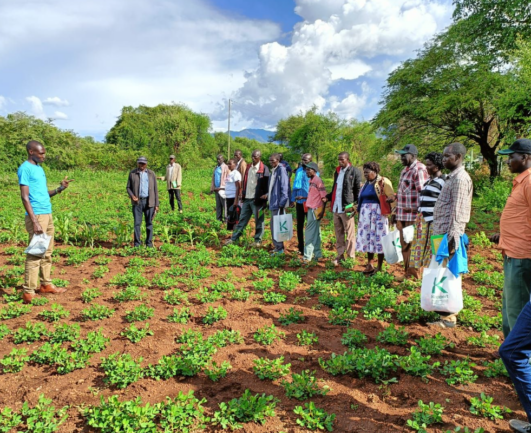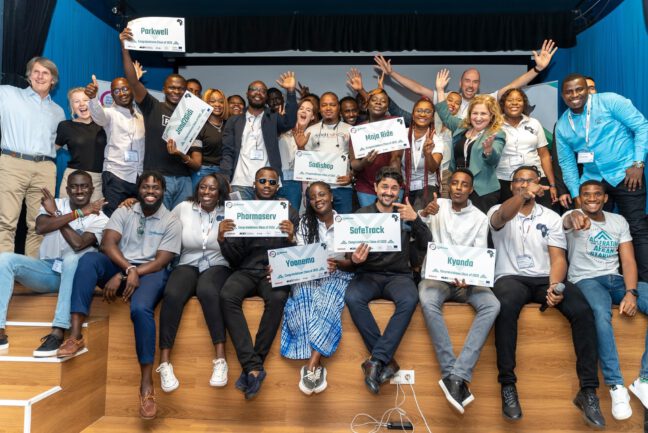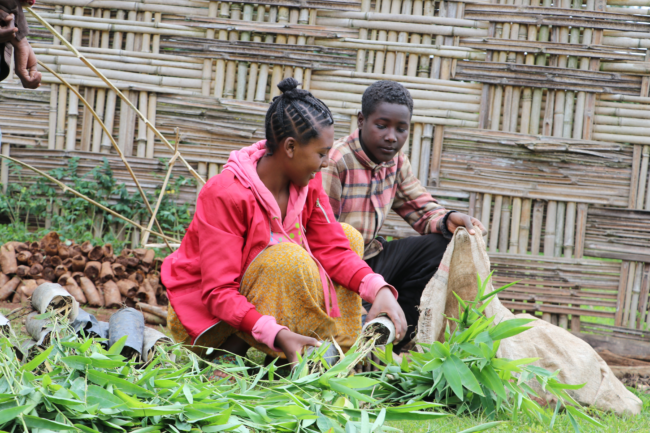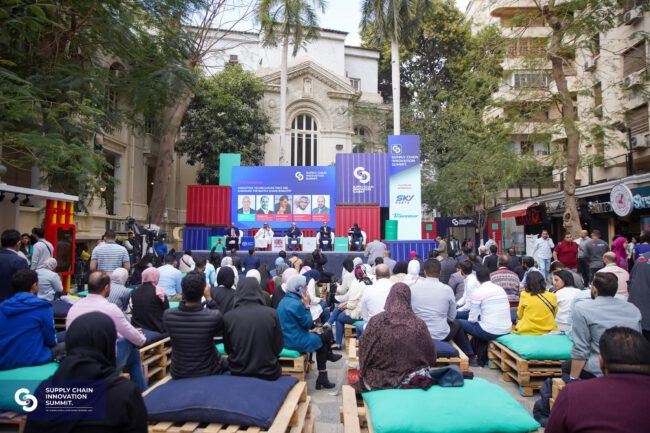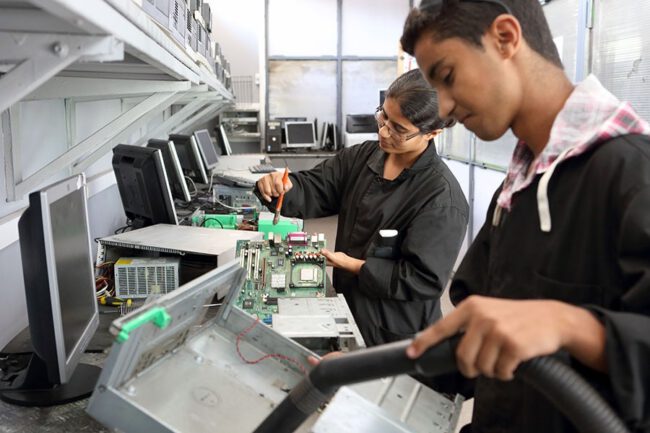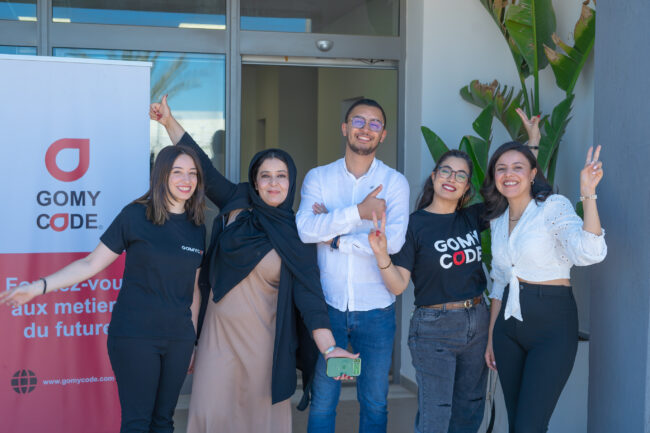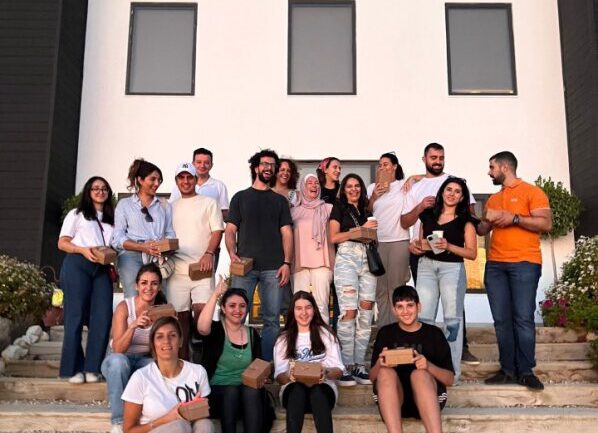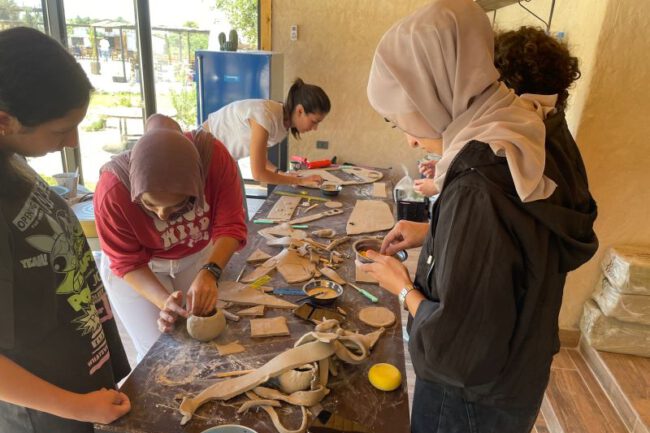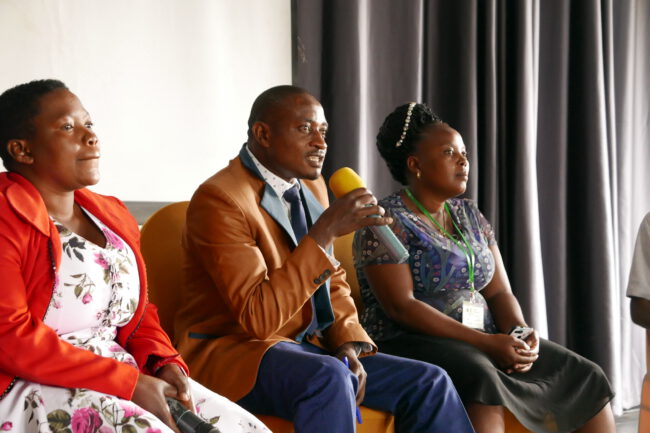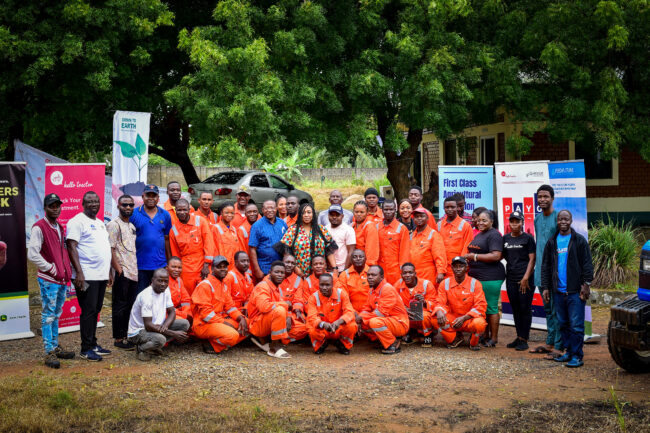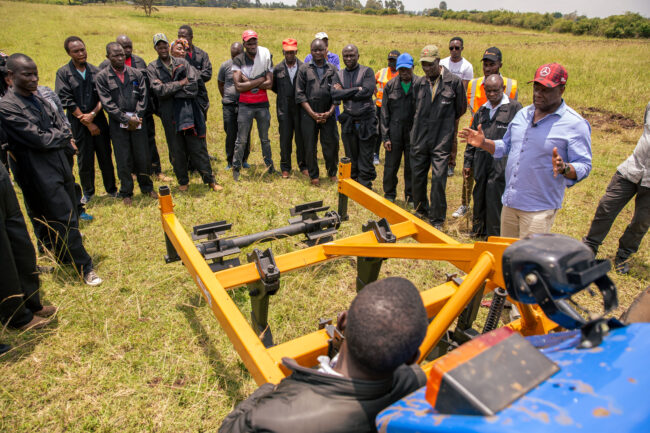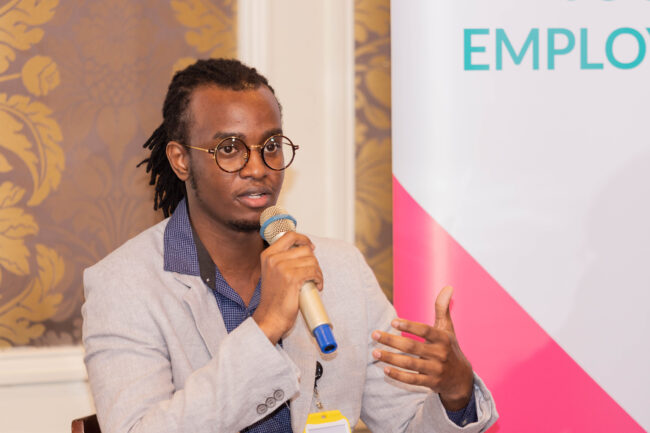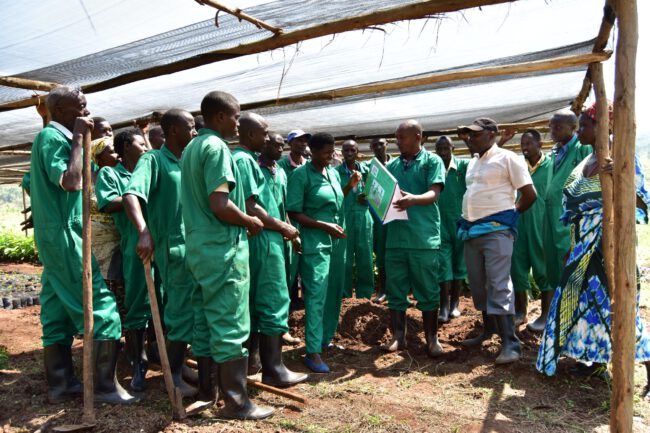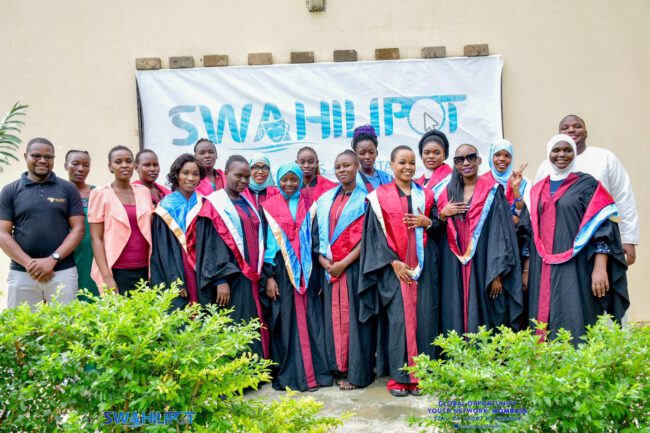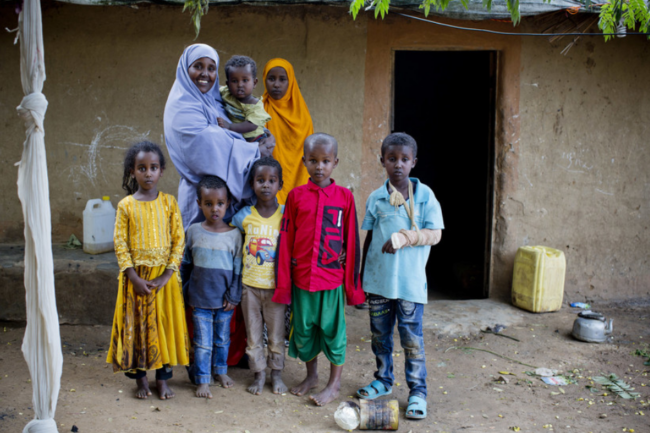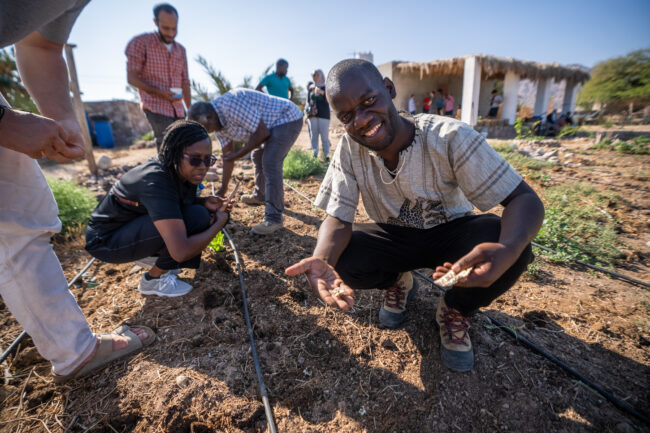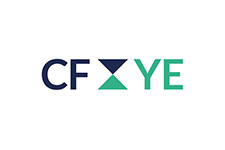Check the Our Impact Page for more up-to-date results and impact!
How to boost decent employment for youth in Africa and the Middle East?
Challenge accepted
As the Challenge Fund for Youth Employment (CFYE) reaches its midway point, we take this opportunity to reflect on our progress since its inception in 2019 and highlight our achievements for 2023. Along this journey, we have gathered valuable insights on supporting initiatives that aim to create meaningful and decent job opportunities for the youth in Africa and the Middle East.
2023 marked a shift in focus for CFYE, from launching calls and selecting proposals to implementation, impact creation, and catalysation.
The final Call for Solutions (Call 6) was launched in 2023 in Egypt, Senegal, Morocco, Nigeria and Kenya. At the same time, the first group of projects completed activities and began closing out in Uganda.
So far, a total of 56,829 jobs has been generated for young people, 28,377 of which are for young women (50%). Beyond the jobs for youth, an additional nearly 19K jobs have been generated for individuals aged 36 or older, who fall outside CFYE’s target group and are not included in the programme goal. The CFYE recognises 3 main pathways to youth employment: creating new jobs, matching young people to existing opportunities, and improving the quality of their current jobs. These three categories constitute CFYE’s overall outcomes, and together they form the current and foreseen impact.
2023 Achievements
Create
49% of planned jobs in the CFYE portfolio are situated within the create category, which refers to the number of young people who gain employment as a result of newly created decent work and income opportunities.
Until 2023, IPs in the CFYE portfolio have created 27,464 jobs for young people, 55% of which for young women. Most (45%) of these jobs are waged jobs followed by self-employed jobs (43%).
In the MENA region, CFYE’s planned jobs are more often waged, accounting for 77% of the planned jobs in this region.
In particular, we observed that projects offering entrepreneurship support can often reach large numbers of youth, including refugees, young mothers, those living in rural areas, and others with limited access to income-generation opportunities.
Match
Of the total jobs planned in the CFYE portfolio, 12% are matched jobs.
Matching indicates that an individual has been hired or contracted for paid work by an employer (work that existed independent of CFYE interventions). This may occur either as a result of job placement, match-making services or through the young person’s own initiative to find a job, following a CFYE skill development intervention. In 2023, a total of 2,101 young people were matched to jobs, 979 of which were female (47%).
Matching often goes hand in hand with training or career counselling interventions. This includes different types of training, delivered either before hiring or on-the-job, and aimed at improving soft skills and/or technical skills, on topics ranging from good agricultural practices and solar panel installation to cybersecurity and coding. Within the CYFE Programme 51,593 young people have completed training that enables them to work in jobs or start their own business.
Improve
Job Improvement occurs when young people experience an improvement in employment quality in their current job. An improvement indicates a meaningful change for the better in one or more aspects of employment quality.
CFYE recognises three broad aspects of job quality income/wages; working conditions (such as changes in policies or practices that contribute to a better work environment); and job security (including contract and income improvements or social protections). This may occur through IPs offering technical training, inputs, and offtake agreements for youth working in agriculture to increase their productivity and income, for example, or by providing mentorship and access to gig-matching platforms for
youth in the creative sector to build a client base and access more regular short-term jobs.
In 2023, 27,264 young people experienced an improvement in their employment quality, 12,176 of those young people are female (45%)
Impact Stories
Creating Space to Sign: Diana & Kalanzi’s Path to Inclusive Work in the Green Economy
 Faatimah Clarke
Faatimah Clarke
Two Years Later: James’s Mission for Cleaner Streets and Stronger Communities
 Sade Aalto-Setala
Sade Aalto-Setala
Agrowise and the Power of Local Innovation in Sudan: When Resilience meets Reinvention
 Faatimah Clarke
Faatimah Clarke
Valuable lessons
Together with our partners, we have gathered valuable lessons about how to deepen our impact, how to grow and evolve Fund operations efficiently and effectively, how to define decent work and measure employment quality, how to engage young people in our decision-making, and how to strengthen the evidence base for future programs.
How to define and measure decent jobs
We can’t focus on job creation without job quality. To determine which jobs would be “good enough to count”, we first developed minimum standards and a scoring rubric. However, when we tried to operationalise these tools, we faced challenges, especially in measuring and applying a living wage benchmark. The living wage is a gold standard that all employers should aim for, but its value varies considerably in different contexts and can be difficult to calculate and monitor. Furthermore, in many of the contexts where we work, most workers do not earn a living wage, making it unrealistic as a universal minimum standard for CFYE. This especially holds for self-employed, part-time, or gig workers.

The world of work is also changing, and employment standards are still catching up. Some countries have recently updated minimum wage regulations, while others haven’t been updated in decades. In addition to wages, other aspects, such as work-life balance, job security, and opportunities for development, are also crucial for youth. Given the variation in labour standards by country and the diversity of jobs in our portfolio, we realised that our decent work threshold needed to be revisited. Therefore we evolved our strategy, splitting the concept between decent work standards (defined by ILO’s four core labour standards and applicable to all CFYE-supported projects and jobs) and the CFYE’s job quality improvement framework – for projects aiming to improve broader aspects of job quality (wages, working conditions, job security). This new approach enables us to uphold universal minimum standards for decent work while also accommodating contextually-relevant definitions, interventions, and measurement approaches focused on enhancing job quality. These efforts are informed by local labour laws, sector-specific standards, and/or the valuable perspectives of youth regarding what truly matters.
How to amplify youth voices
CFYE strives to create employment opportunities for underserved youth, particularly young women, who often face underemployment and poor working conditions. Through scoping research, we identify these underserved youth and design projects to reach them.
We have taken a frontrunner role in embedding Meaningful Youth Participation (MYP) in its private sector-driven work. To support our partners in understanding and contributing to youth’s actual needs and aspirations, we piloted a youth-led approach via “youth champions”: one-year national volunteers whose mandate is to bring a youth perspective across CFYE and partners using youth-friendly methods. These youth champs conducted youth-action research and helped shape some of the CFYE’s key activities. Based on the success and learnings of the 2021 Youth Champs pilot, the CFYE Youth Champs initiative was scaled-up and formalised in 2022.
In addition, 16 Youth Champions and 4 Youth Experts from Kenya, Uganda, Nigeria, and Ethiopia were engaged as in-house experts in 2022. The network creates a win-win situation for both CFYE and Youth Champs, benefiting from the youth perspective while supporting the personal and professional development of the Youth Champs.
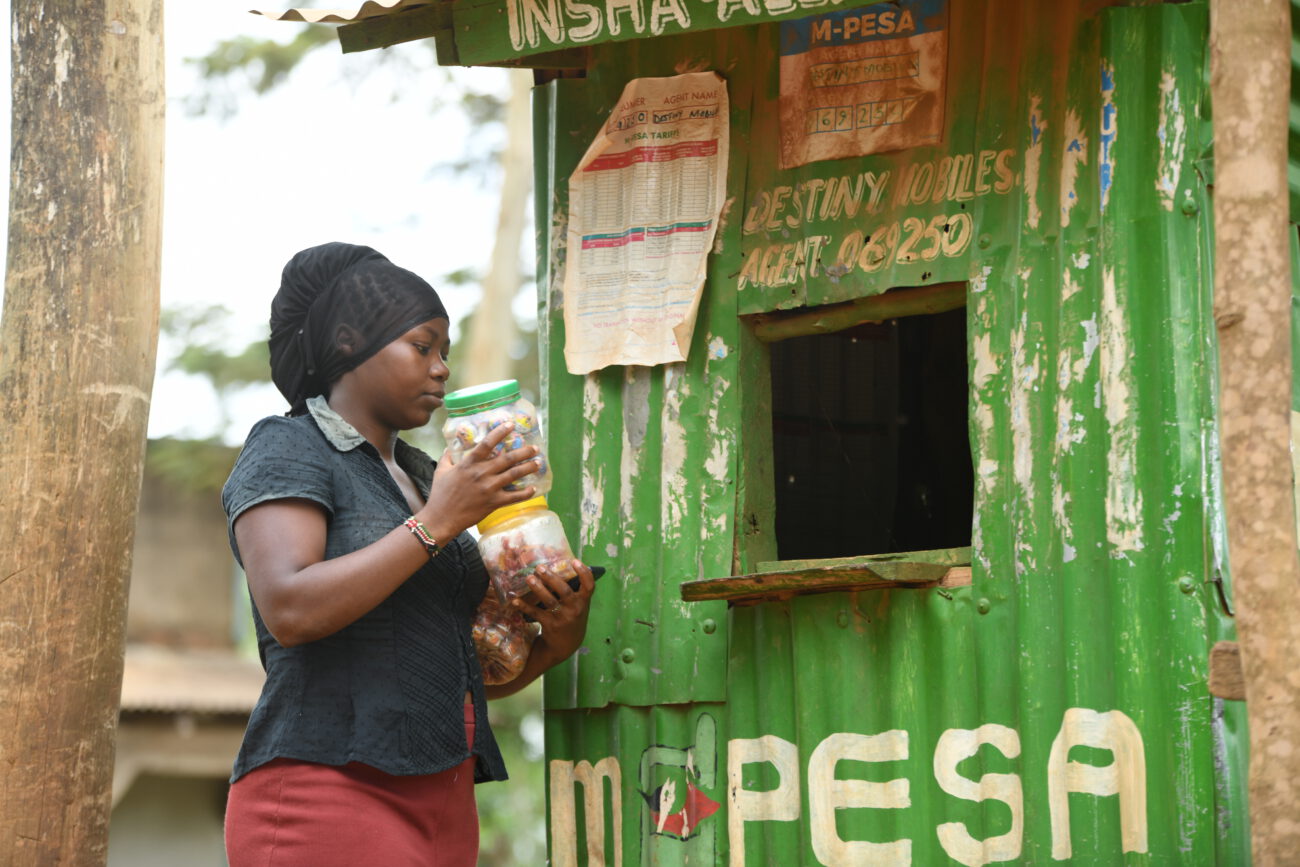
Tool for youth champions
In addition to engaging designated youth champions, we also designed and tested a self-assessment tool for our partners to discover how to better integrate a youth and gender lens in their businesses. It is framed around three components: attracting, selecting, and retaining youth talent, and includes specific building blocks, including marketing and community-based outreach, youth-inclusive recruitment, young professional development opportunities, peer networks, gender-inclusive practices, and youth-led benefits. Based on scoring in the matrix, partners may adapt their projects to improve their youth and female focus.
How to scale up our work in an effective, impactful, and efficient way
Our Delivery at Scale initiative focused on three priority areas: strategic alignment, operational efficiency and practical integration. Through a thorough diagnostic and consultative process, the CFYE’s organisational structure was revamped, and a dedicated Fund Management team was established. Country Leads were empowered as drivers of CFYE’s in-country strategy and service delivery with active support from other teams. We updated and rolled out critical processes and frameworks for portfolio management, including Quarterly Reporting & Reviews, Annual Reporting & Reviews, Internal Quarterly Portfolio Reviews, and Payments-by-Results-Framework.
How to better run our challenge fund mechanism to achieve our goal
Support intermediaries to finance and scale small and growing businesses (SGBs)
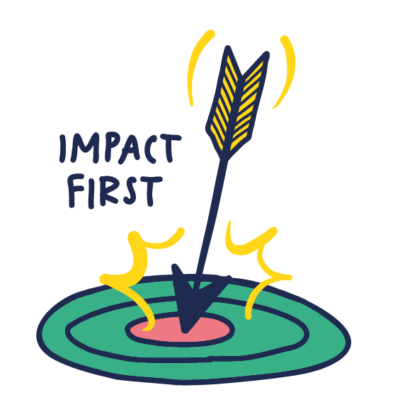 We recognise that small and growing businesses (SGBs) are the engine of job creation in our focus countries. However, it would be inefficient for CFYE to fund most SGBs directly due to our co-funding requirement and limited capacity to manage and monitor smaller grants. Therefore, we collaborate with intermediaries that support other enterprises and entrepreneurs with business support, entrepreneurship development, finance, training, and/or job-matching support.
We recognise that small and growing businesses (SGBs) are the engine of job creation in our focus countries. However, it would be inefficient for CFYE to fund most SGBs directly due to our co-funding requirement and limited capacity to manage and monitor smaller grants. Therefore, we collaborate with intermediaries that support other enterprises and entrepreneurs with business support, entrepreneurship development, finance, training, and/or job-matching support.
How to grow and learn
Our revised Learning Agenda helps us create, share and use learning, knowledge and innovation to achieve our strategic goals. The Agenda highlights five priority learning themes:
1) Defining and measuring the quality of jobs for youth
2) The investment case for quality employment
3) The future of work for youth (with a strong emphasis on digital and green jobs)
4) Enhancing the youth employment ecosystem
5) CFYE’s strategy and model.
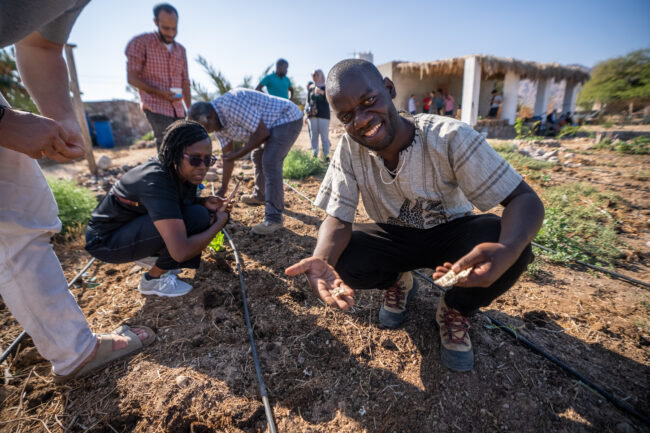
The Future of Work for Youth
Green jobs
Together with INCLUDE, we started a collaboration aimed at gaining insights into green jobs and their key features, as well as identifying green job opportunities for youth and employers. A framework was developed to measure green jobs and formulate green job pathways. For more information, see our portfolio page on green jobs.
Digital jobs
We paired knowledge with JobTechAlliance (MercyCorps) and ILO Systemic Initiative on a learning lab to generate insights around key features, quality and inclusivity of digitally enabled jobs. For more information, see our portfolio page on digital jobs.
How to strengthen the evidence base for youth employment
In our first year, together with the Ministry of Foreign Affairs and our partners, we identified key learning objectives based on evidence gaps in our theory of change. These objectives include defining and measuring the quality of jobs (or decent work), the business case for decent work for youth, the future of work, and strengthening the youth employment ecosystem.
Three stage approach
We follow a three-staged approach in our learning: first, we gain more insights through engaging with our partners and (if needed) conducting additional research; second, we apply these insights to improve performance; and third, we build sufficient evidence to inform the wider sector.
Events
About the CFYE
Funded by the Ministry of Foreign Affairs of the Netherlands, the Challenge Fund for Youth Employment (CFYE) aims to create a prosperous future for 230,000 young women and men in the Middle East, North Africa, Sahel & West Africa, and the Horn of Africa. We do this by providing funding and technical assistance to initiatives that offer youth, particularly young women, opportunities for decent work – work that delivers better prospects for personal development, is productive, and provides a stable income, social protection, and safe conditions. The CFYE is managed by a consortium including Palladium, Voluntary Service Overseas (VSO), and Randstad.
Our Strategy
We strongly believe that by supporting businesses and intermediaries with capital, capacity, and targeted strategies, we can enable them to create more and better income-generating opportunities for youth. Our ultimate goal is to realise decent employment either by creating new job opportunities, matching youth with existing ones, or improving working terms and conditions.
